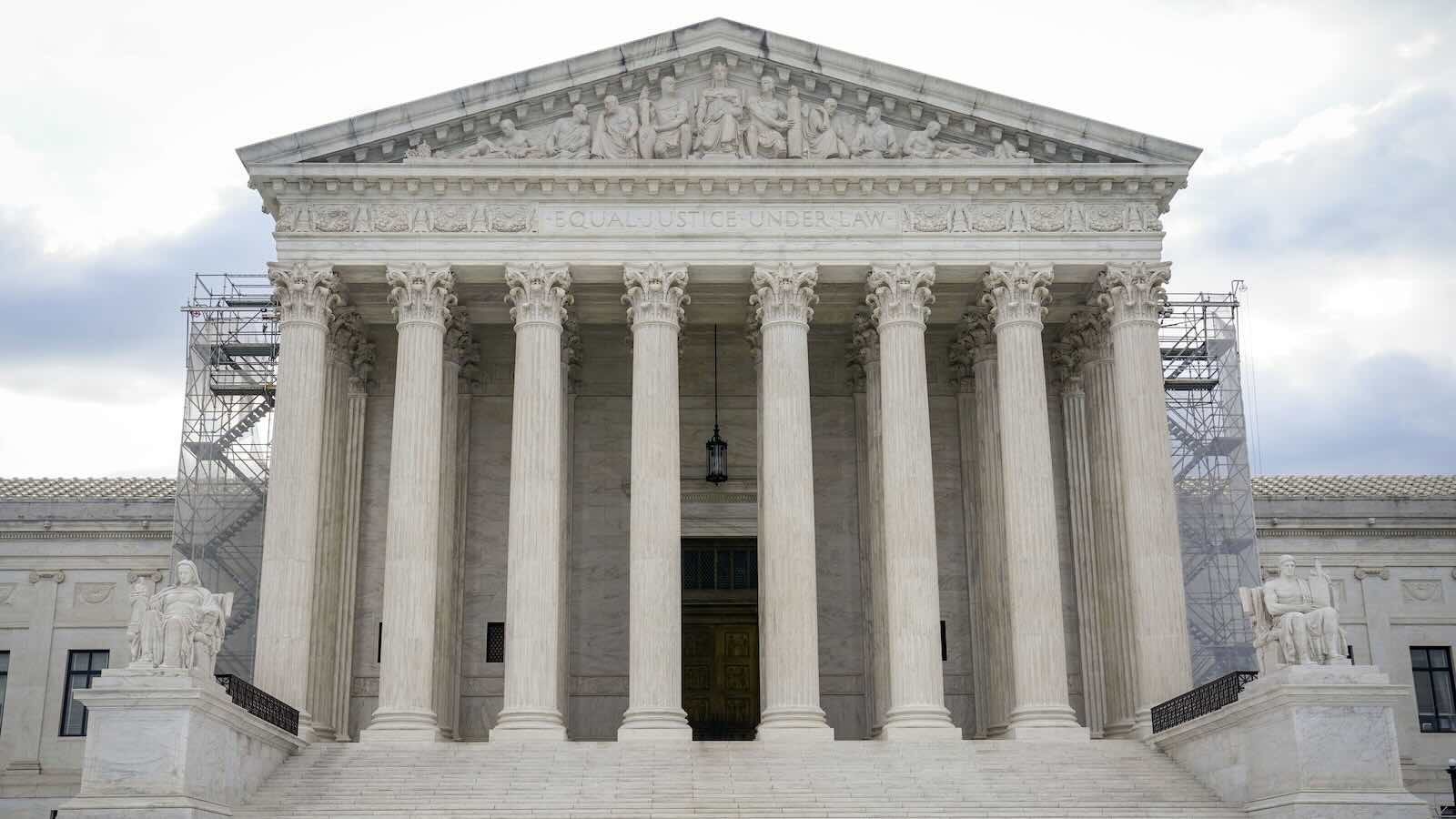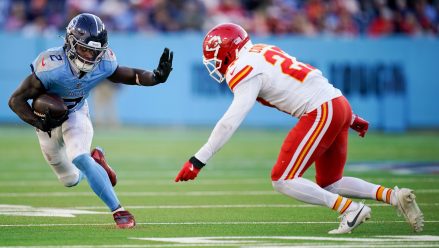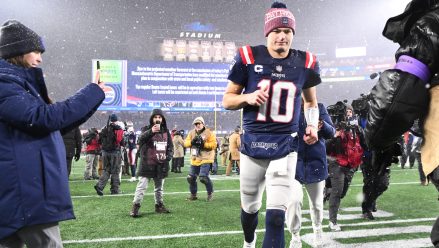A legal doctrine described by the Supreme Court as “obnoxious” almost 90 years ago has emerged in the lawsuit between Kalshi and New Jersey regulators.
Enter the nondelegation doctrine, a legal principle that constrains congressional gifting of power.
As first reported by InGame, the Indian Gaming Association (IGA) and a large number of other tribal gaming entities filed a letter earlier this month to alert the U.S. Court of Appeals for the Third Circuit — the appellate court where the Kalshi v. New Jersey case is pending — of a new SCOTUS ruling that addressed the nondelegation doctrine. Just weeks earlier, the same consortium — which calls itself the Tribal Amici — representing tribal gaming filed an amicus brief that pointedly argued:
The statutory and regulatory framework governing the listing of new event contracts delegates to private entities a sweeping authority to implement binding regulatory decisions without meaningful federal oversight. This violates the nondelegation doctrine, which guards precisely the type of unchecked, privately exercised regulatory power that Kalshi is claiming to transform the highly regulated sports betting market.
What is the nondelegation doctrine? And how could it potentially apply in the ongoing prediction-market lawsuits percolating in New Jersey, Nevada, and Maryland? Here is a primer.
A coal mining origin

By most accounts, the genesis of the private nondelegation doctrine was the Supreme Court’s 1936 ruling in Carter v. Carter Coal Company. The case involved a dispute over whether a federal law could allow one group in the coal-mining business to effectively regulate a competitor. The Supreme Court described the situation thusly:
The power conferred upon the majority is, in effect, the power to regulate the affairs of an unwilling minority. This is legislative delegation in its most obnoxious form; for it is not even delegation to an official or an official body, presumptively disinterested, but to private persons whose interests may be and often are adverse to the interests of others in the same business. And a statute which attempts to confer such power undertakes an intolerable and unconstitutional interference with personal liberty and private property. The delegation is so clearly arbitrary, and so clearly a denial of rights safeguarded by the due process clause of the Fifth Amendment, that it is unnecessary to do more than refer to decisions of this court which foreclose the question.
Given the “obnoxious” nature of the law passed by Congress, the Supreme Court did not permit the delegation of regulatory power to the private competitor.
Currently, the nondelegation doctrine is generally considered to have two strands. The first is the “public nondelegation doctrine” and pertains to whether Congress can delegate its legislative power to public agencies, like the Commodity Futures Trading Commission (CFTC). The second is the “private nondelegation doctrine” and addresses whether Congress can delegate regulatory power to private entities.
Both strands could attach in the context of prediction markets.
New SCOTUS decision
Late last month, the Supreme Court issued its ruling in Federal Communications Commission v. Consumers’ Research and re-enunciated the parameters of the nondelegation doctrine. When the delegation at issue flows from Congress to a federal agency, SCOTUS asks “whether Congress has set out an ‘intelligible principle’ to guide what it has given the agency to do.”
The new Supreme Court decision, which was written by Justice Elena Kagan as part of a 6-3 majority, also addressed the second strand — the private nondelegation doctrine. Here, SCOTUS found that “a regulation violates the private nondelegation doctrine when it allows non-governmental entities to govern.”
The recent amicus brief filed by the IGA and the consortium of other tribal entities argues how the nondelegation doctrine applies in the case of prediction markets operating in all 50 states:
Here, the self-certification provisions empower private entities (like Kalshi) to define, structure, and launch contracts, which affects the national economy and infringes upon tribal sovereignty. Moreover, the provisions provide no mechanism for advance public comment, no requirement of CFTC findings or review, no mandatory agency oversight, and no standards by which the CFTC may implement its discretion whether to stay a self-certification … Therefore, because the self-certification provisions improperly delegate Kalshi the authority to perform a core governmental function without any clear guiding principles, standards, or limitations, Kalshi’s sports event contracts listed pursuant to these provisions are invalid.
Justice Alito’s take
Close observers of the 2018 Supreme Court case that ushered in the expansion of legalized sports betting nationwide — Gov. Murphy v. NCAA, NFL, NBA, NHL & MLB — will recall that the author of the decision was Justice Samuel Alito. He wrote: “Congress can regulate sports gambling directly, but if it elects not to do so, each State is free to act on its own.”
Note the adverb “directly.”
Justice Alito also has strong feelings about the nondelegation doctrine. In a 2015 case involving Amtrak, he wrote that when delegating to private parties, “there is not even a fig leaf of constitutional justification.”
Justice Alito is not alone. In a concurrence to the recent ruling, Justice Brett Kavanaugh explained why congressional delegations to independent agencies — like the CFTC — “raise substantial questions” under the constitution and the Supreme Court “should address that problem” in a future case.
How could this apply in the Kalshi cases?
Breadcrumbs of developments over the past six months could impact how the nondelegation doctrine is considered by the federal appellate court in the New Jersey case or the district court courts in Nevada and Maryland.
During a Senate confirmation hearing in June, presumptive CFTC Chair Brian Quintenz offered several revealing items. In response to a question from Sen. Cory Booker, Quintenz alluded to the lack of any framework provided by Congress to guide the CFTC. Here is the complete exchange:
Booker: Okay, to me, just on the face of it, even with the omissions that you just spoke to, I just feel like it’s undermining the clear language of the Commodity Exchange Act, which states that event contracts involving gaming shall not be listed if the CFTC determines that they are contrary to the public interests. Would you agree with that?
Quintenz: So there is a special rule for the review of event contracts, yes, and it does mention specific kinds of events that could trigger.
Booker: And you would have a role in this position on determining this space.
Quintenz: Yes, although I would say, and I have spoken about this, I had a very, very long statement when I was a commissioner previously on this. That provision of the statute troubles me in terms of trying to execute it with repeatability and legality, especially in a post-Loper Bright world, because there is no framework that was provided for by Congress in terms of how to execute that appropriately. What constitutes the public interest? What constitutes an appropriate kind of …
Further, Acting CFTC Chair Caroline Pham recently said that the federal agency “has never denied or put a hold on a suggested market” in the 50 years of the CFTC’s existence.
Next steps in the litigation
No judge has ever decided whether the nondelegation doctrine applies to the CFTC’s oversight of prediction markets.
Kalshi has the option — but not the requirement — to respond to the nondelegation doctrine argument furthered by the Tribal Amici in its recent legal brief. Kalshi’s next court filing will likely be made later this month.
New Jersey also can elect to piggyback on the argument in its own response brief due later this summer. The appellate court, in turn, will probably issue a ruling before the end of the year.
If the New Jersey prediction market case eventually snakes its way to the Supreme Court and the nondelegation doctrine gets a foothold, look for the party filing the petition seeking review to tailor its legal brief so it is warmly received by Alito and Kavanaugh. Four votes are required for the Supreme Court to take a case.
Until then, perhaps a yes-no prediction market could be created asking whether the Supreme Court will hear such a case before June 30, 2027.






